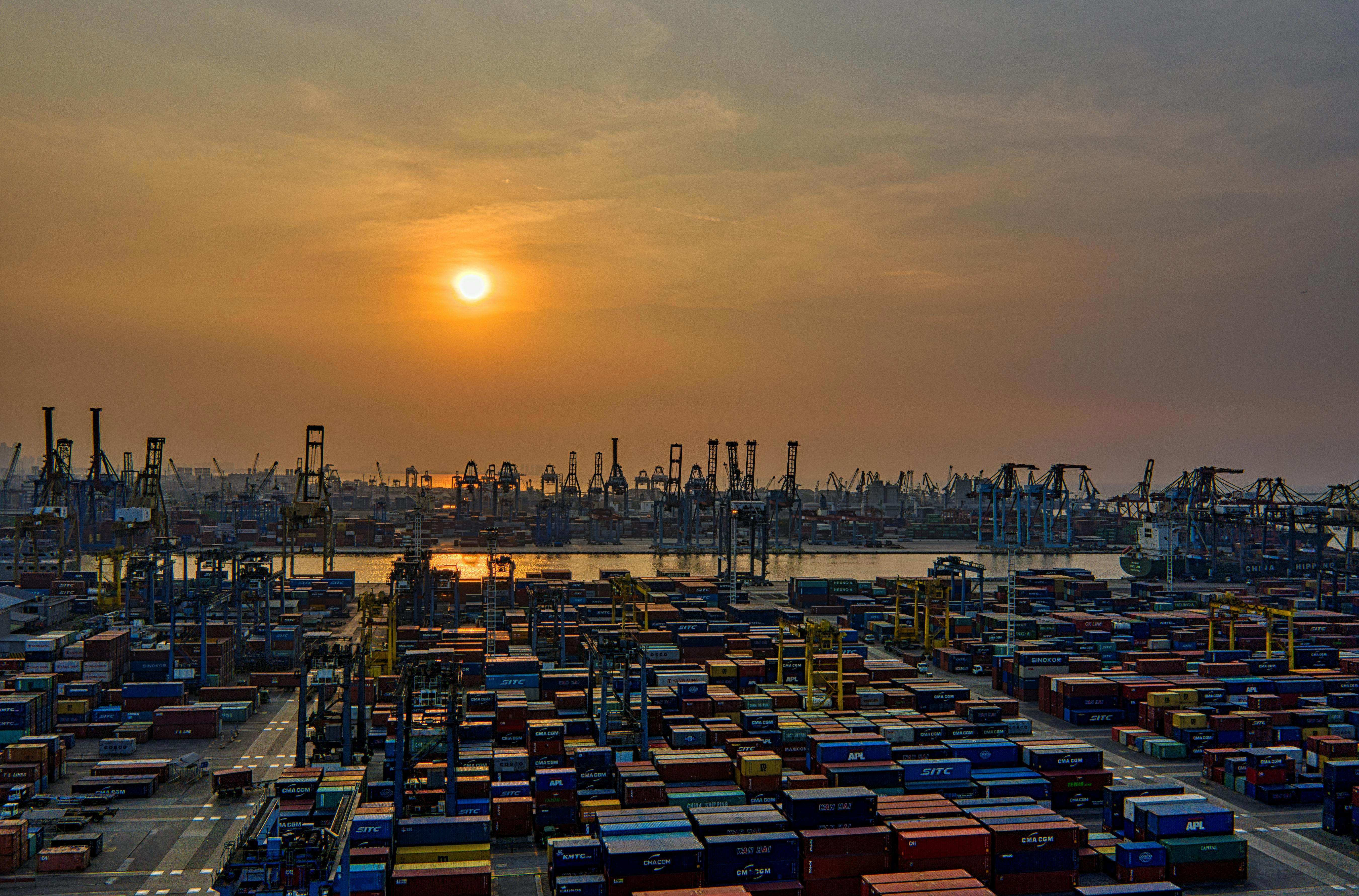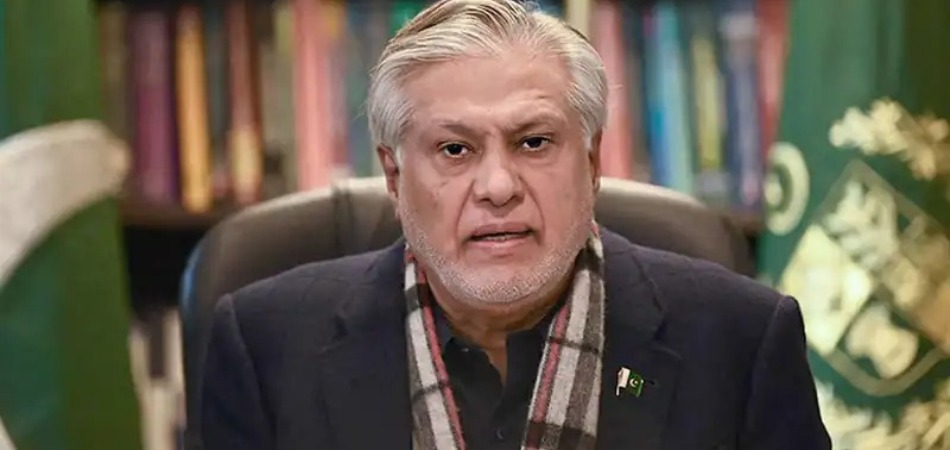Pakistan-EU collaborates for 2025-2027 projects on global gateway, policy framework
.jpeg)
By MG News | December 13, 2024 at 02:14 PM GMT+05:00
December 13, 2024 (MLN): The European Union outlined projects planned for 2025-2027,the ongoing Multi-annual Indicative Programme (MIP), and provided updates on its policy framework and the Global Gateway initiative, during the 14th Pakistan-EU Joint Commission held today.
Pakistan and EU reaffirmed their commitment to tackling emerging global challenges, including food and energy security, climate change, and sustainable development, as reported by APP.
The meeting outlined the significance of the Global Gateway strategy in fostering mutual growth and resilience in these sectors.
The meeting underscored the importance of continued cooperation, particularly in areas such as trade, migration, human rights, and political, economic, and development initiatives.
The EU expressed its continued support to Pakistan in developing green and clean energy.
The bilateral relations and cooperation were discussed during the meeting which took stock of recent political developments besides the ongoing formation of the new College of Commissioners.
In the meeting of the Sub-Group on Development, both Pakistan and the EU agreed on the continued relevance of key priority areas under the ongoing Multi-annual Indicative Programme (MIP).
These areas include Green Inclusive Growth, Human Capital/TVET, and Governance, including Rule of Law and Human Rights.
The EU presented the details of the projects for the period 2025-2027 following the Mid-Term Review of the MIP and updated on the EU’s policy framework and the Global Gateway.
The Joint Commission was preceded by the Sub-Group on Democracy, Governance, Rule of Law and Human Rights in which two sides agreed on the need for continued efforts to strengthen the electoral process.
The EU reiterated the importance of political pluralism, democratic values, independent media, vibrant civil society, judicial independence, and international human rights standards, which are key for democratic elections.
Pakistan presented its reform agenda, including the framework of the National Action Plan on Human Rights and the National Action Plan on Business and Human Rights, APP further added.
The agenda also outlined actions towards the full implementation of 27 international conventions related to GSP+.
Pakistan and the EU also exchanged views on freedom of religion or belief and the rights of persons belonging to minorities and vulnerable groups and concerns about anti-Muslim hatred.
The meeting of the Pakistan-EU Sub-group on Trade preceded the Joint Commission.
Both sides acknowledged the importance of a robust multilateral trading system and exchanged views on recent developments at the multilateral (WTO), plurilateral, and bilateral levels.
Both sides acknowledged that since the grant of GSP status in 2014, the bilateral trade relations have made significant strides.
Pakistan appreciated the recent visit of the European Investment Bank to Pakistan, which took place in September this year.
The country also agreed on the opportunity to enhance engagement within the framework of the Global Gateway by identifying new investments.
Reiterating their commitment to the Pakistan-EU Strategic Engagement Plan (SEP) signed in 2019, Pakistan and the EU reviewed the state of its implementation, 5 years on.
Pakistan presented proposals to expand bilateral cooperation in additional areas, among others in agriculture, taxation, and disaster risk reduction.
The Joint Commission discussed the progress on joint commitments in the context of the Pakistan-EU comprehensive Migration and Mobility Dialogue, including in the area of return and readmission under the Pakistan-EU Joint Readmission Agreement.
It also covered legal migration under the Pakistan-EU Talent Partnership.
The EU reiterated its appreciation for Pakistan’s generosity in hosting Afghan refugees over the decades and welcomed the decision to extend the validity of Proof of Registrations cards of Afghan nationals residing in Pakistan until June 30, 2025.
The EU also reiterated its support for the Solution Strategy for Afghan Refugees (SSAR), aimed at providing lasting solutions for Afghan refugees and their host communities in neighbouring countries.
Pakistan also called for an immediate and unconditional ceasefire in Gaza and the complete withdrawal of Israeli troops from the occupied Arab territories.
The EU reiterated its call for an urgent ceasefire in Gaza and the unconditional release of all hostages.
It also emphasized the need for urgent and unimpeded humanitarian access, the distribution of humanitarian assistance at scale, and an enduring end to hostilities in line with UN Security Council Resolution 2735.
Both Pakistan and the EU stressed the need to find peaceful solutions to all conflicts, in full respect of the principles of international law and the UN Charter.
It was agreed to hold the next session of the EU-Pakistan Joint Commission in Brussels in 2025.
Copyright Mettis Link News
Related News
| Name | Price/Vol | %Chg/NChg |
|---|---|---|
| KSE100 | 128,199.43 336.91M |
2.05% 2572.11 |
| ALLSHR | 79,787.62 1,023.63M |
1.53% 1202.91 |
| KSE30 | 39,105.00 121.90M |
2.49% 951.21 |
| KMI30 | 186,915.61 131.16M |
1.10% 2029.11 |
| KMIALLSHR | 54,201.88 553.60M |
0.81% 438.07 |
| BKTi | 33,476.68 51.49M |
4.87% 1555.00 |
| OGTi | 27,962.58 9.77M |
0.68% 188.60 |
| Symbol | Bid/Ask | High/Low |
|---|
| Name | Last | High/Low | Chg/%Chg |
|---|---|---|---|
| BITCOIN FUTURES | 105,735.00 | 106,200.00 105,625.00 |
-15.00 -0.01% |
| BRENT CRUDE | 67.09 | 67.29 67.06 |
-0.02 -0.03% |
| RICHARDS BAY COAL MONTHLY | 97.50 | 97.50 97.50 |
0.70 0.72% |
| ROTTERDAM COAL MONTHLY | 103.80 | 103.80 103.80 |
-3.45 -3.22% |
| USD RBD PALM OLEIN | 998.50 | 998.50 998.50 |
0.00 0.00% |
| CRUDE OIL - WTI | 65.38 | 65.65 65.34 |
-0.07 -0.11% |
| SUGAR #11 WORLD | 15.70 | 16.21 15.55 |
-0.50 -3.09% |
Chart of the Day
Latest News
Top 5 things to watch in this week
Pakistan Stock Movers
| Name | Last | Chg/%Chg |
|---|
| Name | Last | Chg/%Chg |
|---|




 CPI
CPI